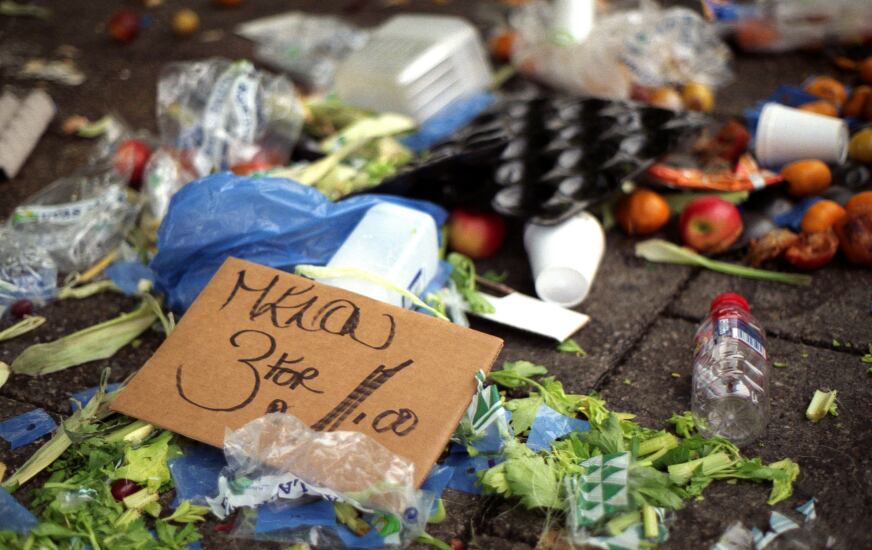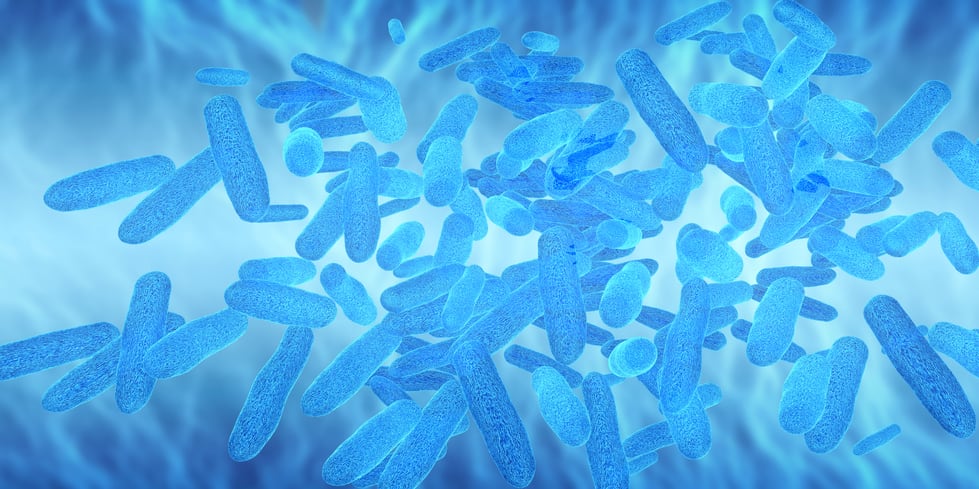It's a big challenge: the United Nations’ Food and Agriculture Organisation (FAO) estimates that we waste 1.3bn tonnes of food each year. This is enough to feed 3bn people, and more than enough to feed the 925m people in the world who are starving.
But for Danish supplier Chr Hansen, playing a part in reducing global food waste in the dairy sector also makes good business sense because it can do it by selling its own products.

“We have set ourselves the target to reduce global yoghurt waste by 2% by 2020 through our bioprotective cultures that extend shelf-life," the company's CEO Cees De Jong told FoodNavigator after a roundtable session on preventing food waste at last week’s World Food Summit in Copenhagen.
“When you think of the volume of yoghurt that represents, it’s huge. If we hit the target, it is the equivalent of no yoghurt waste in the UK for ten years – 700,000 tonnes.”
The firm asked an independent auditing company to make sure the numbers are achievable but de Jong said the firm’s own experience helps. “We are a listed company so we’re used to setting financial targets. It’s the same here. We have an ambition [to cut food waste] but we know we need targets that are achievable.”
The cultures tick all the right boxes in terms of both efficacy and clean label concerns, the company said. Products stay fresh and safe for longer so manufacturers can extend the shelf life and sell-by date which means less food waste at the consumer end. They are also natural which means manufacturers can dispense with chemical-sounding preservative names on food labels.
The firm’s first generation of bioprotective bacteria are already on the market and it will launch a second, stronger generation by the end of the year, the CEO said, aimed at extending the shelf life of dairy products in more challenging conditions, such as countries with hot climates or that lack cold storage infrastructure.
Government support to fight food waste?

Given the sheer scale of food waste occurring across the globe in both developed and developing regions – should governments be thinking of mandatory protection and preservation of food? After all, mandatory fortification of food is already a reality in many northern European countries.
“That would be nice but may not be very realistic to expect,” said de Jong.
However, government interest in promoting natural alternatives to pesticides – an area where CHR Hansen also has operations – may be there in his native Netherlands, he said.
De Jong cited a study conducted by an independent advisory board to the Dutch government outlining how one quarter of the country’s 200 underground water reservoirs are contaminated with agricultural pesticides, one third of which are currently banned because they damage human health.
“The conclusion was basically ‘we need to go to biological farming in order to prevent this’. So we are just lucky that we’re sitting on this goldmine of bacteria that we can use; bioprotection in food is a good example, agriculture is another.”
Good bacteria, bad bacteria
The company’s 140-year history in “playing with bacteria” has allowed it to select the strongest ones, and it currently has a collection of 30,000 different strains for food protection and animal, plant and human health.

Over the years, De Jong, a trained medical doctor, has seen first-hand the fundamental shift in attitudes towards bacteria in three different industries.
“When I was studying medicine, the paradigm was ‘the best bacteria is dead bacteria’. Then I began working in the pharmaceutical industry, manufacturing antibiotics, where we also wanted to kill as much bacteria as possible. Now we are beginning to understand why bacteria surround us, what nature intended with them and the importance of the microbiome on regulating health.
“Good bacteria in food also have a function and that’s what we see with bioprotective cultures. […] Some of the chemical preservatives are of course very powerful, but if they are killing off all the micro-organisms you could argue whether ultimately this is good for the human body.”
Watch this space: ‘We’re looking into other foods’
CHR Hansen sells bioprotective cultures for dairy and some meat products but it has also been working on salmon and pre-packed salads after a number of requests from retailers.
It currently generates a small amount of sales from these foods but has been “investing heavily” in new food categories and, as always, to find even more effective bacteria, de Jong said.
“We haven’t made any announcements about other foods yet but we are looking into them, and by the end of the year we will launch second generation strong products for mostly dairy.”
Investment in R&D
The firm invests around 7% of its sales back into R&D and counts roughly 14% of its employees work in research and product development, as well as having close to 300 partnerships with universities and start-ups.

It has toyed with the idea of setting up a venture arm to foster innovation with start-ups but hasn’t made the jump yet.
“We have the debate on and off whether we should have a venture arm but we think we’re still a bit too small for that. We’re only close to one billion in sales and we have such a strong organic growth profile in the businesses we already have that we are very careful when it comes to spending extra money.”
It has, however, acquired three start-ups in the past two years. In addition to a small Australian dairy culture company, in 2016 it bought US-based NPC which supplies cattle probiotics and Valio-owned LGG’s 3,200-strong library of probiotic strains for €73m.
On acquisitions: ‘I’ve made my share of mistakes at other companies’
“We are genuinely interested in getting our hands on more bacteria strains and technology,” said de Jong. “But we are very cautious when it comes to acquisitions. I’ve made share of mistakes already at other companies and I don’t need to make acquisitions to be a happy CEO. We can grow on our own strength – 8 to 10% - and that’s what we’ve been doing.”
